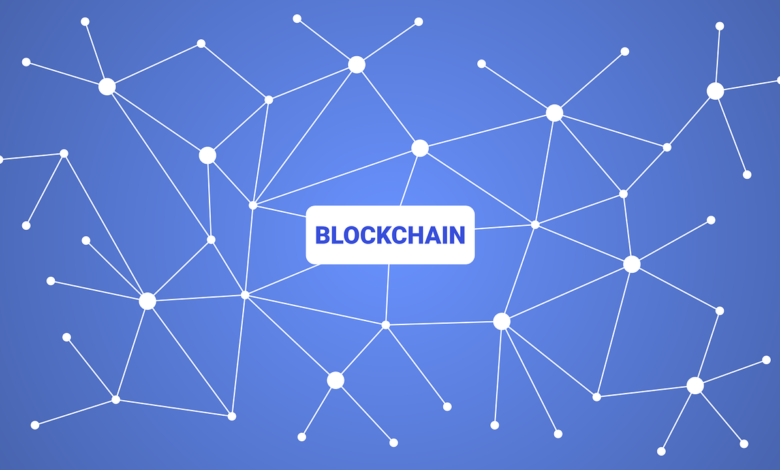what is Blockchain

Blockchain is a distributed digital ledger technology that allows multiple parties to have a secure, tamper-proof, and transparent record of transactions without the need for a central authority.
In a blockchain network, each participant maintains a copy of the ledger, and any changes made to the ledger are validated and approved by a consensus mechanism agreed upon by the network’s participants. These changes are then added to the blockchain as a new block, which is cryptographically secured and linked to the previous block, forming a chain of blocks.
Because each block in the chain contains a unique digital signature, any attempt to tamper with the data in a single block would be immediately detected by the network, making the blockchain an immutable and transparent record of transactions.
The most well-known application of blockchain technology is Bitcoin, a decentralized digital currency that allows users to make transactions without the need for a central authority. However, blockchain technology can also be used in a variety of other applications, such as supply chain management, voting systems, and decentralized applications (dApps).
What is blockchain technology?
Blockchain technology is a distributed digital ledger that allows multiple parties to share and maintain a tamper-proof record of transactions without the need for a central authority.
In a blockchain network, each block of data contains a record of multiple transactions that have been verified and added to the chain of blocks in a chronological order. These blocks are linked together using cryptography, making it virtually impossible for anyone to alter the contents of a block once it has been added to the chain.
The decentralized nature of blockchain technology makes it resistant to hacking and fraud, as there is no single point of failure or control. It also provides a high level of transparency, as all parties on the network have access to the same information.
Blockchain technology is best known for its use in cryptocurrencies like Bitcoin and Ethereum, but it has many other potential applications, including supply chain management, voting systems, and digital identity verification.
How does blockchain work?
At a high level, here is how blockchain technology works:
- Participants on the network create and submit transactions to be recorded on the blockchain.
- A network of computers, also known as nodes, validate the transactions and package them into a block.
- The block is broadcast to the entire network for verification.
- Once the block is verified by a majority of the nodes, it is added to the blockchain and becomes a permanent part of the ledger.
- The next block in the chain is then created, containing a record of new transactions, and the process repeats.
Each block in the blockchain contains a cryptographic hash of the previous block, which creates a chain of blocks that is resistant to tampering. If someone tries to modify a block, the hash of that block will change, which will break the chain of hashes and alert the nodes on the network that the block has been tampered with. This makes the blockchain virtually immutable and provides a high level of security and trust in the data recorded on the ledger.
How is blockchain technology disrupting industries?
Blockchain technology has the potential to disrupt many industries by providing new levels of transparency, security, and efficiency. Here are a few examples of how blockchain is already disrupting different industries:
- Finance and Banking: Blockchain technology has the potential to transform the way financial institutions operate by streamlining payment processing, reducing transaction costs, and increasing transparency. It also enables the creation of decentralized financial applications (DeFi) that allow users to participate in financial activities without the need for intermediaries.
- Supply Chain Management: Blockchain technology can be used to create a secure and transparent supply chain network, allowing businesses and consumers to track products from production to delivery. This can help reduce fraud, improve traceability, and increase consumer trust.
- Healthcare: Blockchain technology can help improve the management and sharing of patient data, enabling patients to have more control over their medical records and facilitating secure data sharing between healthcare providers.
- Real Estate: Blockchain technology can streamline the real estate transaction process by providing secure and transparent digital records of property ownership and transactions. This can help reduce fraud, simplify property transfers, and improve transparency in the industry.
- Identity Verification: Blockchain technology can be used to create a decentralized identity verification system, where users have control over their personal information and can share it securely and selectively with third parties.
Overall, blockchain technology has the potential to disrupt many industries by enabling new forms of trust, transparency, and collaboration. As the technology continues to evolve, we can expect to see even more innovative applications emerge.
Conclusion.
Blockchain technology is a decentralized digital ledger that records transactions. It is a digital record of transactions that are permanently stored across multiple computers and cannot be altered retroactively without the alteration of all subsequent blocks and the collusion of the network. Blockchains have the following properties: The blockchain is a distributed database of records, called blocks, which are linked and secured using cryptography. Each block typically contains a cryptographic hash of the previous block, a timestamp, and transaction data. By design, a blockchain is inherently resistant to modification of the data. It is “an open, distributed, decentralized ledger that can record transactions between two parties efficiently and in a verifiable and permanent way.”





